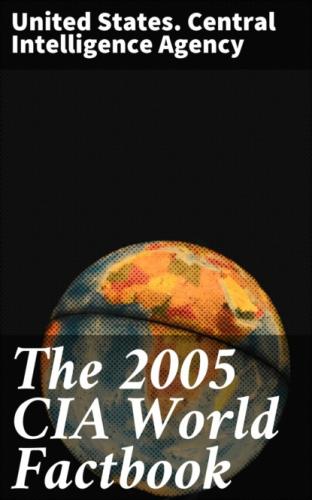concepts and by new criminal procedures and election codes; has not
accepted compulsory ICJ jurisdiction
Suffrage:
17 years of age; universal and married persons regardless of age
Executive branch:
chief of state: President Susilo Bambang YUDHOYONO (since 20
October 2004) and Vice President Muhammad Yusuf KALLA (since 20
October 2004); note - the president is both the chief of state and
head of government
head of government: President Susilo Bambang YUDHOYONO (since 20
October 2004) and Vice President Muhammad Yusuf KALLA (since 20
October 2004);
cabinet: Cabinet appointed by the president
elections: president and vice president were elected for five-year
terms by direct vote of the citizenry; last held 20 September 2004
(next to be held in September 2009)
election results: Susilo Bambang YUDHOYONO elected president
receiving 60.6% of vote; MEGAWATI Sukarnoputri received 39.4%
Legislative branch:
unicameral House of Representatives or Dewan Perwakilan Rakyat
(DPR) (550 seats; members elected to serve five-year terms); House
of Regional Representatives (Dewan Perwakilan Daerah or DPD),
constitutionally mandated role includes providing legislative input
to DPR on issues affecting regions; People's Consultative Assembly
(Majelis Permusyawaratan Rakyat or MPR) has role in inaugurating and
impeaching President and in amending constitution; consists of
popularly-elected members in DPR and DPD; MPR does not formulate
national policy
elections: last held 5 April 2004 (next to be held in April 2009)
election results: percent of vote by party - Golkar 21.6%, PDI-P
18.5%, PKB 10.6%, PPP 8.2%, PD 7.5%, PKS 7.3%, PAN 6.4%, others
19.9%; seats by party - Golkar 128, PDI-P 109, PPP 58, PD 55, PAN
53, PKB 52, PKS 45, others 50
note: because of election rules, the number of seats won does not
always follow the number of votes received by parties
Judicial branch:
Supreme Court or Mahkamah Agung (justices appointed by the
president from a list of candidates approved by the legislature); a
separate Constitutional Court or Makhama Konstitusi was invested by
the president on 16 August 2003; in March 2004 the Supreme Court
assumed administrative and financial responsibility for the lower
court system from the Ministry of Justice and Human Rights
Political parties and leaders:
Crescent Moon and Star Party or PBB [Yusril Ihza MAHENDRA,
chairman]; Democratic Party or PD [Subur BUDHISANTOSO, chairman];
Functional Groups Party or Golkar [Yusuf KALLA, chairman]; Indonesia
Democratic Party-Struggle or PDI-P [MEGAWATI Sukarnoputri,
chairperson]; National Awakening Party or PKB [Alwi SHIHAB,
chairman]; National Mandate Party or PAN [Amien RAIS, chairman];
Prosperous Justice Party or PKS [MAHFUD, acting chairman]; United
Development Party or PPP [Hamzah HAZ, chairman]
Political pressure groups and leaders:
NA
International organization participation:
APEC, APT, ARF, AsDB, ASEAN, BIS, CP, FAO, G-15, G-77, IAEA, IBRD,
ICAO, ICC, ICFTU, ICRM, IDA, IDB, IFAD, IFC, IFRCS, IHO, ILO, IMF,
IMO, Interpol, IOC, IOM (observer), ISO, ITU, MIGA, MONUC, NAM, OIC,
OPCW, OPEC, UN, UNAMSIL, UNCTAD, UNESCO, UNIDO, UNMIL, UNOMIG, UPU,
WCL, WCO, WFTU, WHO, WIPO, WMO, WToO, WTO
Diplomatic representation in the US:
chief of mission: Ambassador SOEMADI Brotodiningrat
chancery: 2020 Massachusetts Avenue NW, Washington, DC 20036
telephone: [1] (202) 775–5200
FAX: [1] (202) 775–5365
consulate(s) general: Chicago, Houston, Los Angeles, New York, and
San Francisco
Diplomatic representation from the US:
chief of mission: Ambassador B. Lynn PASCOE
embassy: Jalan 1 Medan Merdeka Selatan 3–5, Jakarta 10110
mailing address: Unit 8129, Box 1, FPO AP 96520
telephone: [62] (21) 3435–9000
FAX: [62] (21) 385–7189
consulate(s) general: Surabaya
Flag description:
two equal horizontal bands of red (top) and white; similar to the
flag of Monaco, which is shorter; also similar to the flag of
Poland, which is white (top) and red
Economy Indonesia
Economy - overview:
Indonesia, a vast polyglot nation, has restored financial stability
and pursued sober fiscal policies since the Asian financial crisis,
but many economic development problems remain, including high
unemployment, a fragile banking sector, endemic corruption,
inadequate infrastructure, a poor investment climate, and unequal
resource distribution among regions. Indonesia became a net oil
importer in 2004 due to declining production and lack of new
exploration investment. As a result, Jakarta is not reaping the
benefits of high world oil prices, and the cost of subsidizing
domestic fuel prices has placed an increasing strain on the budget.
Keys to future growth remain internal reform, building up the
confidence of international and domestic investors, and strong
global economic growth. In late December 2004, a major tsunami took
nearly 127,000 lives, left more than 93,000 missing and nearly
441,000 displaced, and destroyed $4.5 to $5.0 billion worth of
property.
GDP (purchasing power parity):
$827.4 billion (2004 est.)
GDP - real growth rate:
4.9% (2004 est.)
GDP - per capita:
purchasing power parity - $3,500 (2004 est.)
GDP - composition by sector: agriculture: 14.6% industry: 45% services: 40.4% (2004 est.)
Labor force:
111.5 million (2004 est.)
Labor force - by occupation:
agriculture 45%, industry 16%,
